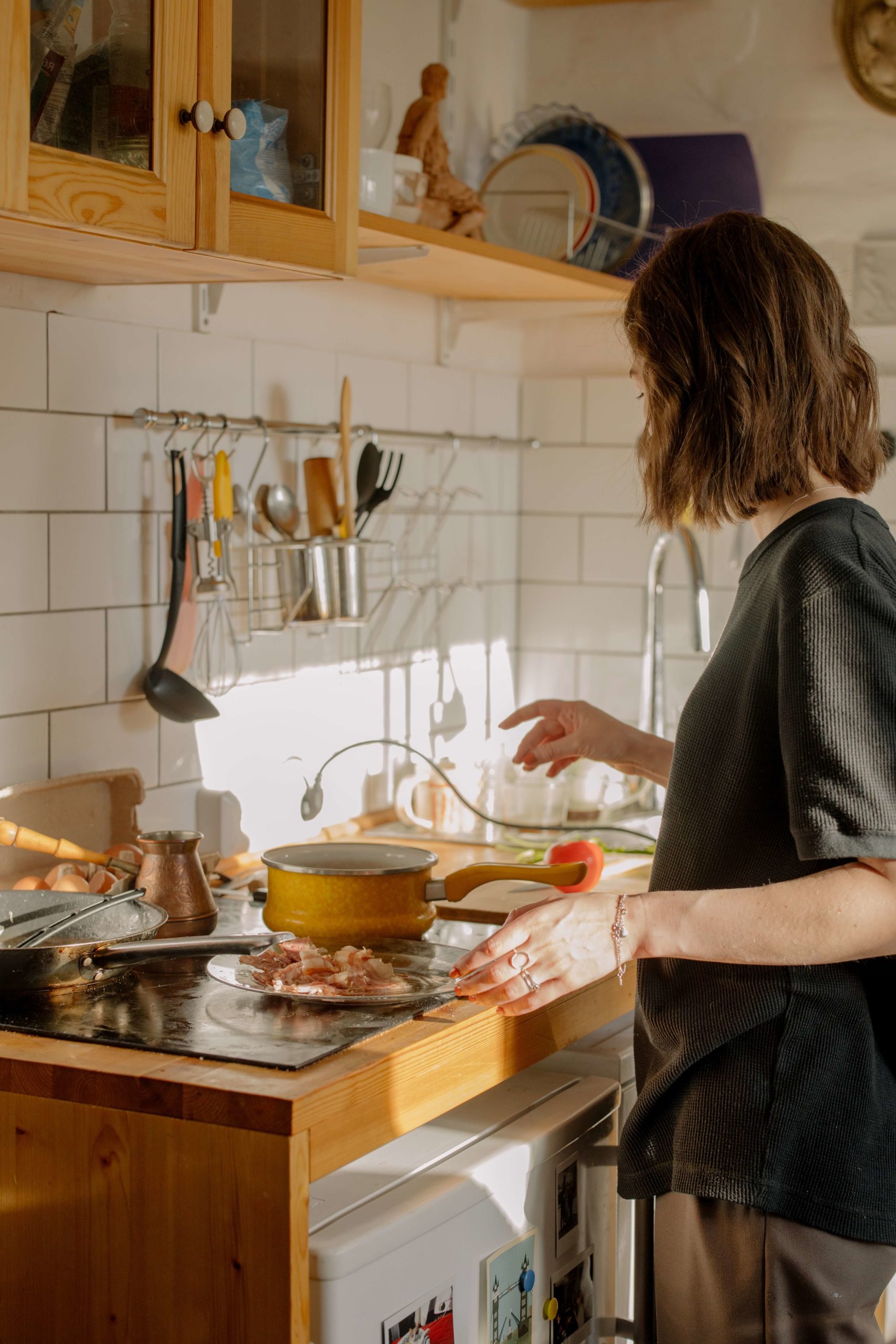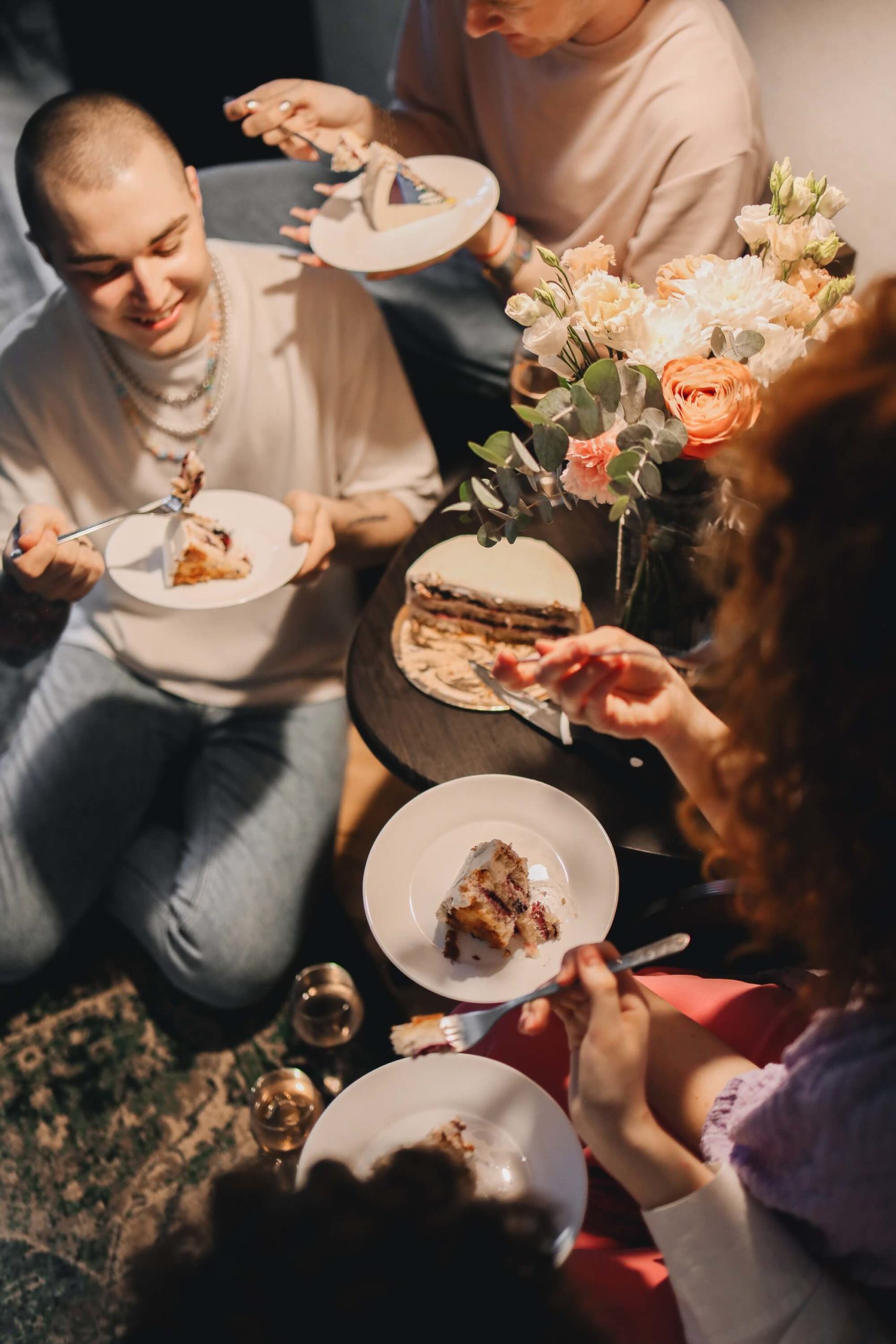Disclaimer: This article should not be taken as medical advice. I am not a doctor or nutritionist, just a fourth year student trying to help people avoid some of the hilarious mistakes I made.
Trigger warning: This article discusses food, weight, and mental health. If you don’t feel comfortable reading about these topics, please enjoy other articles posted by University Life!
It’s an eye-opening experience to sit in your first-year dorm room and realize you now have full responsibility for all your functions, from basic to executive. Or at least, it was eye-opening for me. My first year, as it can be for many other new students, was a haze of misconceived, more-harmful-than-helpful solutions to very basic problems which we humans need to address regularly, like “how do I get enough sleep every night?”, “can I lift this?”, and most often of all, “what should I eat!?” Being on your own for the first time coming into college gives you a level of freedom in determining your diet far beyond what most people experienced at home, but this newfound independence can lead to some missteps.
Whether you’re eating on a meal plan, surviving off frozen meals, or meal prepping with your roommates, understanding your diet and how it will affect your performance across the mishmash of activities first years find themselves involved in will be key. Having personally spent my entire time in university cooking my own meals, my perspective mainly applies to those with that option, although many of the suggestions will also be broadly applicable to other situations. Regardless of how you’re set up for your first year at university, here are some tips from someone who’s been there…
Don’t cheat yourself

Your diet has major effects on the way you sleep, your mood, and the way you perform academically, all of which are important aspects of life entering university and beyond. One of the biggest things you can do to consistently support yourself is to maintain a healthy intake and avoid under-eating or skipping meals. The temptation often arises in college, or busy work environments in general, to skip meals, or to cheat by eating something that doesn’t provide the necessary nutritional value, but this decision will create more harm than it’s worth almost every single time. Inactive metabolism, nutrient deficiency, and fatigue are all common side effects from under-eating, as well as adverse effects on memory that can make it harder for students to retain info from lectures and studying. Under-eating can also greatly affect mood, and can contribute to depression.
It may feel like your only option is to skip lunch while you cram in the library, but I and countless other veteran students will tell you that that’s not a great idea. Skipping meals is also a bad strategy for controlling weight. First-year students very often experience unexpected weight gain due to a sudden change in diet and lifestyle, a phenomenon often referred to as Freshman 15, although the actual poundage averages out to only 2.7. For me, it was about 8 pounds, which I find is right about the point where I began to get self-conscious about my weight spike. Weight gain can be a difficult experience, as it can make one feel more vulnerable and less confident. This can affect our self-perception just when we are trying to mould our own image for the first time. If you find yourself in a situation where you’ve gained weight, it’s entirely your choice as to whether you think you should try and lose it or not, but skipping meals can make it harder to do so. Not only can it make binge eating more difficult to control as cravings significantly increase, but it can also slow down metabolism, making healthy weight loss more difficult. It is a surprisingly tall order to consistently get proper nutrition, but it pays out in dividends.
Take an interest in your plate
A lot of long-term learned behaviours with food can be forged by the way we interact with it in this first year. Friends of mine who learned how to cook in our meal-planless dormitory tend to host much better dinner parties than those who survived off the nearby Domino’s. Invest some time into learning about food, in order to improve your relationship with it. It has never been easier to learn relevant information about cooking, healthy eating, and meal-planning than it is right now. Use resources to learn more about how you want to eat, then make choices about what food options you have that help you achieve your goals. This does not have to be a strenuous process, for me it involved watching food videos on Youtube and surveying a few local grocers and butchers. You’ll be surprised by how much you can learn about cooking from watching instructional videos and trying a couple of recipes!
If you’re on a meal plan, consider downloading a copy of the menu served by your dormitory, that way you can really take your time to understand your options. If you share cooking responsibilities with roommates, try to maintain a good sense of what types of foods and recipes you all enjoy mutually. You can also keep a couple of wildcard recipes on hand that you can try making with your housemates, as a fun experiment. If you consider big dietary changes such as going vegan, getting mindful and intentional about food choices will also benefit you in terms of understanding how you can best adjust your diet and routine to support your health and wellbeing.
 Break Bread with Friends
Break Bread with Friends
Finally, it’s important to remember that food and eating are fundamentally social experiences. Some of the most important relationships and bonds you will ever make will begin with greasy napkins and empty paper plates, at almost any stage of life, but especially at university. Many of the frosh and club events which make up the social arenas of first year will be based around food and drink, and there’s a reason for this… Research shows that people who eat together socially build wider and more robust social networks, as well as generally feel better about themselves.
It can be tempting when you’re busy between classes or hard at work studying to develop very private eating habits akin to using the public restroom. Personal, lonely, quiet and embarrassed eating is certainly a common occurrence in university. I’ve scarfed down many a sandwich in a far-off corner of the library, and TBH I think some of those moments just needed to happen. However, those lonely moments are usually not the best way to eat overall and you should be careful to not make a regular occurrence of them. Finding time to eat with your friends, your acquaintances, and sometimes even people you don’t know can not only help you have a more healthy and mindful approach to eating, but bolster your social skills and relationships. Food brings people together, after all.
In the process of learning anything, there will always be mistakes to make— some sneak up on you, like cravings for junk food late at night, some challenge you openly, like a ripe berry on a low-hanging branch. Learning with food is no different, it will inevitably take time as well as trial and error to better understand how to approach your meals. I made many mistakes in my freshman year and if you’re a freshman reading this, you inevitably will as well.
However, those errors ultimately pave the way for a more complete and appreciative understanding of food that will serve you well as you advance beyond your first year and into a lifetime of preparing your own meals. Building a healthy relationship with food now will set you on a course of continual discovery, fulfillment and enjoyment for years to come.
References
Braverman, Jody. “What Are the Side Effects of Not Eating.” September 11, 2019, https://www.livestrong.com/article/134155-what-are-side-effects-not-eating/
National Centre for Eating Disorders. “The Effects of Under-Eating.” 2018, https://eating-disorders.org.uk/information/the-effects-of-under-eating/
Mihalopoulos, N.L., Auinger, P., & Klein, J.D. “The Freshman 15: Is it Real?” September 9, 2018, https://www.ncbi.nlm.nih.gov/pmc/articles/PMC2532948/
Dunbar, R.I.M. “Breaking Bread: the Functions of Social Eating.” Adaptive Human Behavior and Physiology 3, 198–211 (2017). https://link.springer.com/article/10.1007/s40750-017-0061-4#citeas







